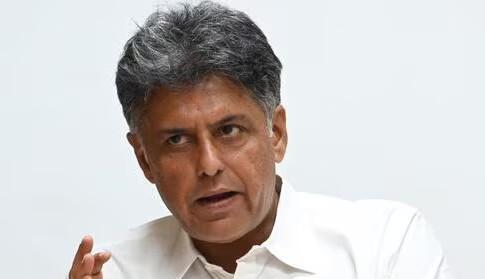
Against Constitution: Tewari on bills to remove jailed PM, CMs
The recent session of the Indian Parliament witnessed a significant development, with Union Minister Amit Shah presenting three bills aimed at removing Prime Ministers, Chief Ministers, and Ministers who are facing serious criminal charges. While the government claims that these bills are intended to ensure accountability and transparency, Congress MP Manish Tewari has strongly opposed the move, terming it as “against the basic structure of the Constitution.”
Speaking to the media, Tewari emphasized that the Indian Constitution is based on the principle of “innocent until proven guilty.” He argued that the proposed bills violate this fundamental principle by allowing the state to remove public officials who are merely accused of committing a crime, without providing them with a fair trial.
The bills, which are still in the process of being debated and passed, seek to amend the Constitution to empower the President or the Governor to remove the Prime Minister, Chief Minister, or Minister from office if they are facing serious criminal charges. While the government claims that these bills are intended to prevent the abuse of power, Tewari believes that they will only create a culture of fear and intimidation, where public officials will be more concerned with avoiding criminal charges than with serving the public.
“The potential for misuse of state instrumentalities under these bills is enormous,” Tewari warned. “Once you create a system where the state can remove public officials based on mere allegations, you create a culture where people will start to use the law to settle personal scores. This is a recipe for disaster, and it will only lead to more corruption and abuse of power.”
Tewari’s concerns are not without basis. In the past, there have been instances where public officials have been removed from office based on trumped-up charges or political vendetta. The proposed bills, if passed, could potentially be used to target political opponents or individuals who are perceived as a threat to the ruling party.
Moreover, the bills are also criticized for being overly broad and vague. The term “serious criminal charges” is not defined, which means that it could be interpreted in a way that is detrimental to the rights of public officials. This lack of clarity could lead to arbitrary and discriminatory applications of the law, which would be a violation of the fundamental rights of citizens.
In addition to Tewari, several other opposition parties have also criticized the bills, terming them as unconstitutional and undemocratic. The Communist Party of India (Marxist) has described the bills as a “direct attack on the democratic structure of the country,” while the Nationalist Congress Party has called them “an attempt to undermine the Constitution.”
The government, on the other hand, has defended the bills, claiming that they are necessary to ensure accountability and transparency in governance. Shah has argued that the bills are intended to prevent the abuse of power and to ensure that public officials are held accountable for their actions.
However, many experts believe that the bills are a knee-jerk reaction to political pressure, rather than a genuine attempt to address the issue of corruption and abuse of power. They argue that instead of targeting public officials, the government should focus on strengthening institutions and ensuring that the rule of law is upheld.
In conclusion, the proposed bills to remove jailed PM, CMs and Ministers are a serious threat to the basic structure of the Constitution. While the government claims that they are intended to ensure accountability and transparency, Tewari and other opposition parties believe that they will only create a culture of fear and intimidation, and undermine the democratic structure of the country.
As the debate on these bills continues, it is essential that the government and the opposition come together to find a solution that balances the need for accountability with the need to protect the rights of public officials. The proposed bills, if passed, could have far-reaching consequences for the country’s democracy, and it is crucial that we get it right.






